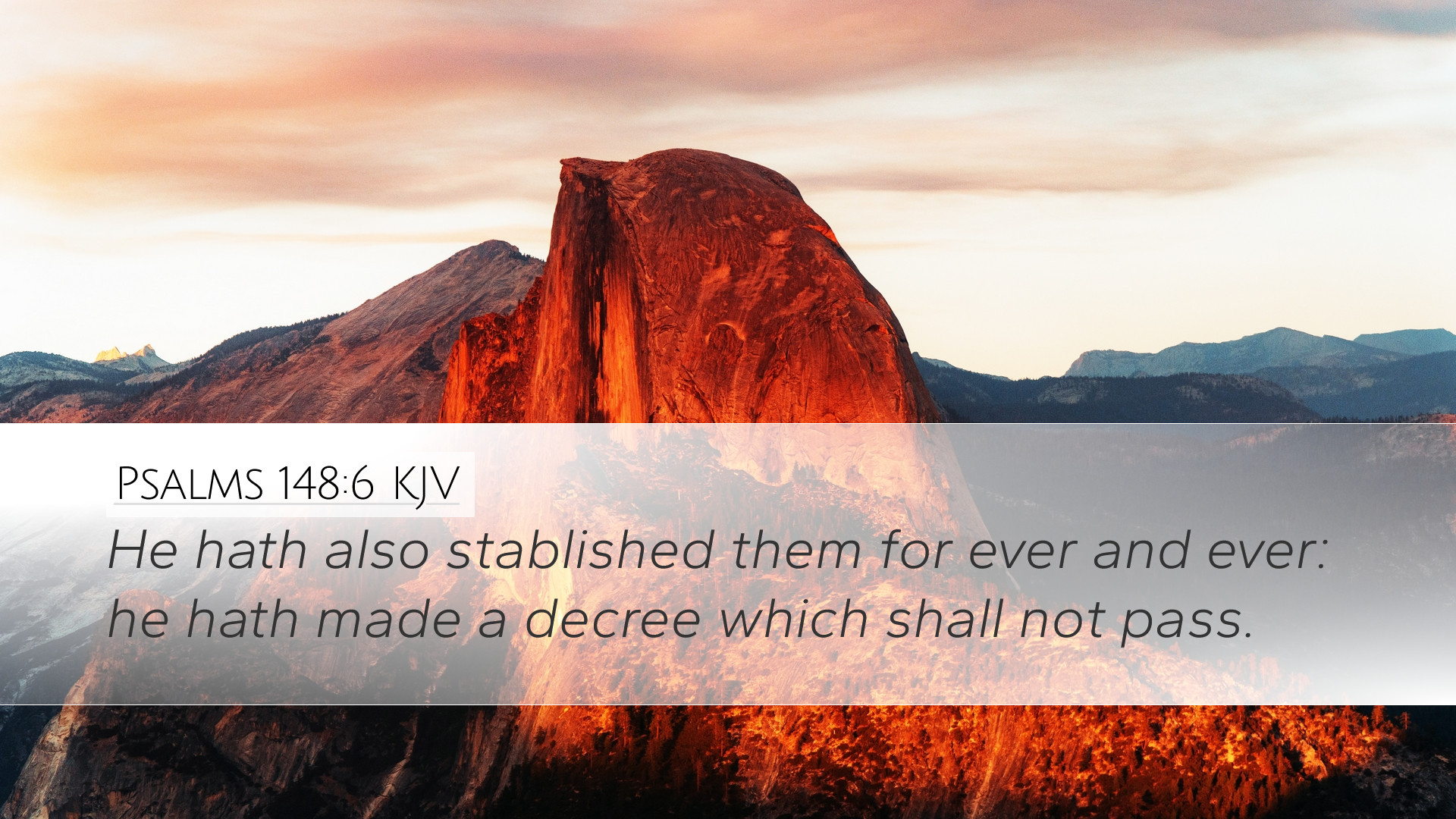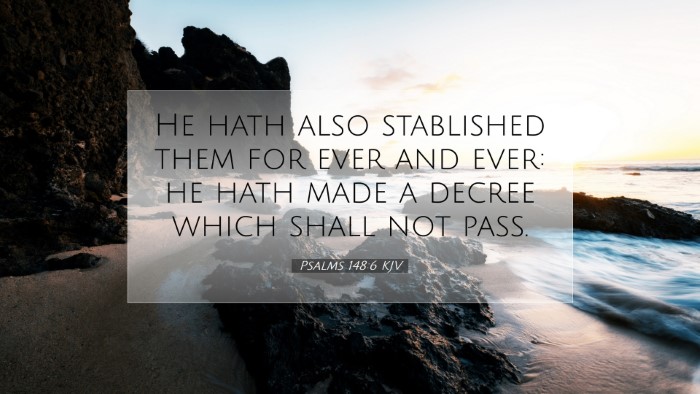Commentary on Psalms 148:6
Psalms 148:6: "He hath also stablished them for ever and ever: he hath made a decree which shall not pass."
Introduction
The Book of Psalms is a profound collection of Hebrew poetry, rich with theological insight and practical admonition. Psalm 148 stands as a jubilant call to praise God from all corners of creation. This particular verse, Psalms 148:6, emphasizes the eternal nature of God's decree concerning creation. This commentary seeks to offer a multifaceted exploration of this verse, drawing from insightful public domain commentaries, particularly those of Matthew Henry, Albert Barnes, and Adam Clarke.
The Context of Psalms 148
The Psalmist calls upon the heavens, the earth, and all the elements within to join in a chorus of praise to the Lord. The inspiration is clear: God's majesty is not confined to Israel alone, but is manifested throughout the entirety of creation. Each element, from angels to the cosmic bodies, is invited to acknowledge God’s sovereignty and glory.
Exegesis of Psalm 148:6
Psalms 148:6 asserts that God has established the created order with a decree that is everlasting. Both His authority and the stability of creation are highlighted.
- God’s Sovereignty: As Matthew Henry notes, the mention of God's decree reflects His sovereignty over creation. He is portrayed as the one who commands all, and His word establishes the laws of nature and the boundaries of existence.
- Immutability of God’s Decree: Adam Clarke elaborates on God's decrees, suggesting they are not only eternal but also reflect His unchanging character. God's word is not subject to alteration; unlike human decrees that can change with circumstances, God's established order is fixed.
- Creation Responds to God: Albert Barnes highlights the idea that creation is responsive to God's authority. The celestial bodies and natural elements are not autonomous but operate under His divine command, which raises a deeper theological implication regarding the interdependence of God and creation.
Theological Implications
This verse invites deeper reflection on several theological themes, such as:
- Theological Sovereignty: Understanding God’s sovereignty is essential for both pastoral ministry and personal faith. The assurance that God 'hath made a decree which shall not pass' reassures believers in God's control amidst chaos and unpredictability in the world.
- Nature of Worship: The acknowledgment of God's eternal decree prompts a consideration of the nature of true worship. Worship is an act of submission to God's will and recognition of His authority over all creation, inviting us to join the chorus of praise.
- Creation's Role in Theology: This verse broadens the perspective on environmental stewardship within Christian theology. Recognizing that creation reflects God's glory encourages a sense of responsibility towards the created order.
Practical Applications
For pastors and scholars, the insights from this verse can lead to various practical applications:
- Create a Culture of Praise: Encourage congregants to view every aspect of creation as an invitation to praise God, cultivating a lifestyle characterized by gratitude and worship.
- Teach on the Nature of God’s Decrees: Explore themes of divine immutability and sovereignty in sermons or study groups, emphasizing how God's unchanging nature can provide comfort and assurance.
- Encourage Environmental Stewardship: Use the insights of this verse to launch initiatives that promote care for the environment, understanding it as a part of God's creation meant to glorify Him.
Conclusion
Psalms 148:6 serves as a potent reminder of God's eternal presence and sovereignty over creation. Drawing from the insights of respected theologians and scholars, we are reminded of the call to worship and praise that extends beyond humanity, encompassing the entirety of creation. For scholars, students, and pastors, this verse invites profound theological reflection and practical application, inspiring a life that acknowledges the eternal decrees of God.


